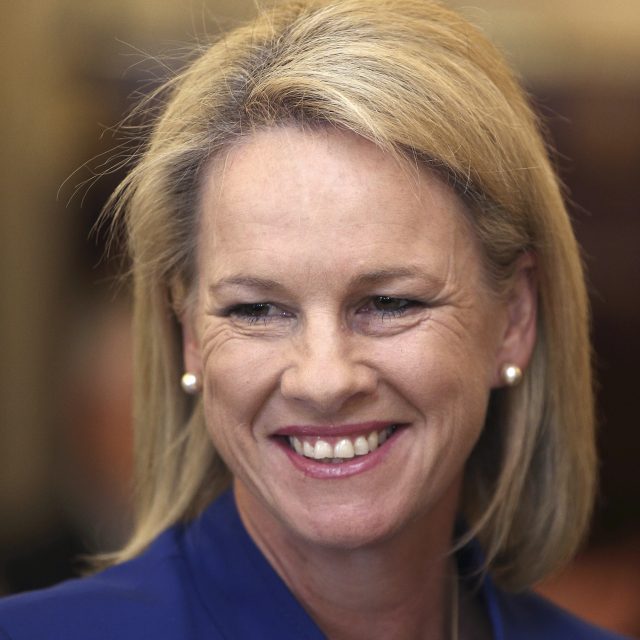
Australia’s High Court has disqualified the deputy prime minister Barnaby Joyce from sitting in Parliament in a ruling that could cost the government its slender majority.
The decision on Friday to disqualify the deputy PM over a constitutional ban on dual citizens sitting in Parliament means a by-election will be held in December.
Mr Joyce will be able to stand for re-election, having renounced the New Zealand citizenship he unknowingly inherited from his father.
Statement on the decision by the High Court https://t.co/fT78RoBiW8
— Malcolm Turnbull (@TurnbullMalcolm) October 27, 2017
Prime Minister Malcolm Turnbull’s conservative coalition has a single-seat majority in the 150-seat House of Representatives where parties form governments.
And with the government trailing the opposition Labour Party in opinion polls, voters could use the by-election to toss both Joyce and his government out of office.
Speaking to reporters after the court ruling, Mr Joyce said: “I was always apprehensive, some people say I’m a natural pessimist, I’m naturally cautious and I was always prepared for this outcome.
“I’m going to make sure that I don’t cry in my beer, I’m going to get back to work and work hard for the people of my electorate.”
The court also disqualified four of the six senators referred to court, including government minister Fiona Nash.
 Senator Fiona Nash was also disqualified (Rob Griffith/AP)
Senator Fiona Nash was also disqualified (Rob Griffith/AP)
Disqualified senators are replaced by members of their own parties without an election so the balance of power is not altered.
Another government minister Matt Canavan, who the court heard might have inherited Italian citizenship from his Australian-born mother through his Italian grandparents, was allowed to stay in Parliament.
Nick Xenophon was also allowed to stay in Parliament. He was born to Cypriot and Greek-born parents and checked with both embassies to ensure he wasn’t a citizen of those countries.
He later discovered he was British because his father left Cyprus while it was a British colony.
The constitution bans dual nationals from Parliament, a prohibition that critics have condemned as outdated in a country where almost half the people are immigrants or have an overseas-born parent.
Gutted for Barnaby and Fiona. Can't wait to continue fighting for secure jobs, strong families and a safe Australia. Full statement
— Matthew Canavan (@mattjcan) October 27, 2017
The lawmakers were exposed as dual citizens as media scrutiny escalated after Scott Ludlam declared in July that he was a New Zealander and had been illegally elected three times over a decade.
Previously only two politicians had ever been caught out by the foreign citizen ban, although other dual citizens have almost certainly served in the Parliament undetected.
The government had argued that only Ludlam and Malcolm Roberts, a senator in the minor One Nation party, should be expelled because they had failed to take reasonable steps to ensure that they only held Australian citizenship.
Every decision made by Barnaby Joyce and Fiona Nash since October last year is under a legal cloud. #auspol
— Australian Labor (@AustralianLabor) October 27, 2017
Solicitor-General Stephen Donaghue had told the High Court judges that the other five should not be disqualified from Parliament for breaching the constitution because they did not voluntarily acquire or retain citizenship of another country.
A clause in the constitution says “a subject or citizen of a foreign power” is not eligible to be elected to Parliament.
Donaghue, however, argued that the clause “cannot be read literally”.
“If a person is not aware either that they are a dual citizen or of a significant prospect that they are, in our submission by definition that person cannot have a split allegiance,” he told the court.


Why are you making commenting on The Herald only available to subscribers?
It should have been a safe space for informed debate, somewhere for readers to discuss issues around the biggest stories of the day, but all too often the below the line comments on most websites have become bogged down by off-topic discussions and abuse.
heraldscotland.com is tackling this problem by allowing only subscribers to comment.
We are doing this to improve the experience for our loyal readers and we believe it will reduce the ability of trolls and troublemakers, who occasionally find their way onto our site, to abuse our journalists and readers. We also hope it will help the comments section fulfil its promise as a part of Scotland's conversation with itself.
We are lucky at The Herald. We are read by an informed, educated readership who can add their knowledge and insights to our stories.
That is invaluable.
We are making the subscriber-only change to support our valued readers, who tell us they don't want the site cluttered up with irrelevant comments, untruths and abuse.
In the past, the journalist’s job was to collect and distribute information to the audience. Technology means that readers can shape a discussion. We look forward to hearing from you on heraldscotland.com
Comments & Moderation
Readers’ comments: You are personally liable for the content of any comments you upload to this website, so please act responsibly. We do not pre-moderate or monitor readers’ comments appearing on our websites, but we do post-moderate in response to complaints we receive or otherwise when a potential problem comes to our attention. You can make a complaint by using the ‘report this post’ link . We may then apply our discretion under the user terms to amend or delete comments.
Post moderation is undertaken full-time 9am-6pm on weekdays, and on a part-time basis outwith those hours.
Read the rules here